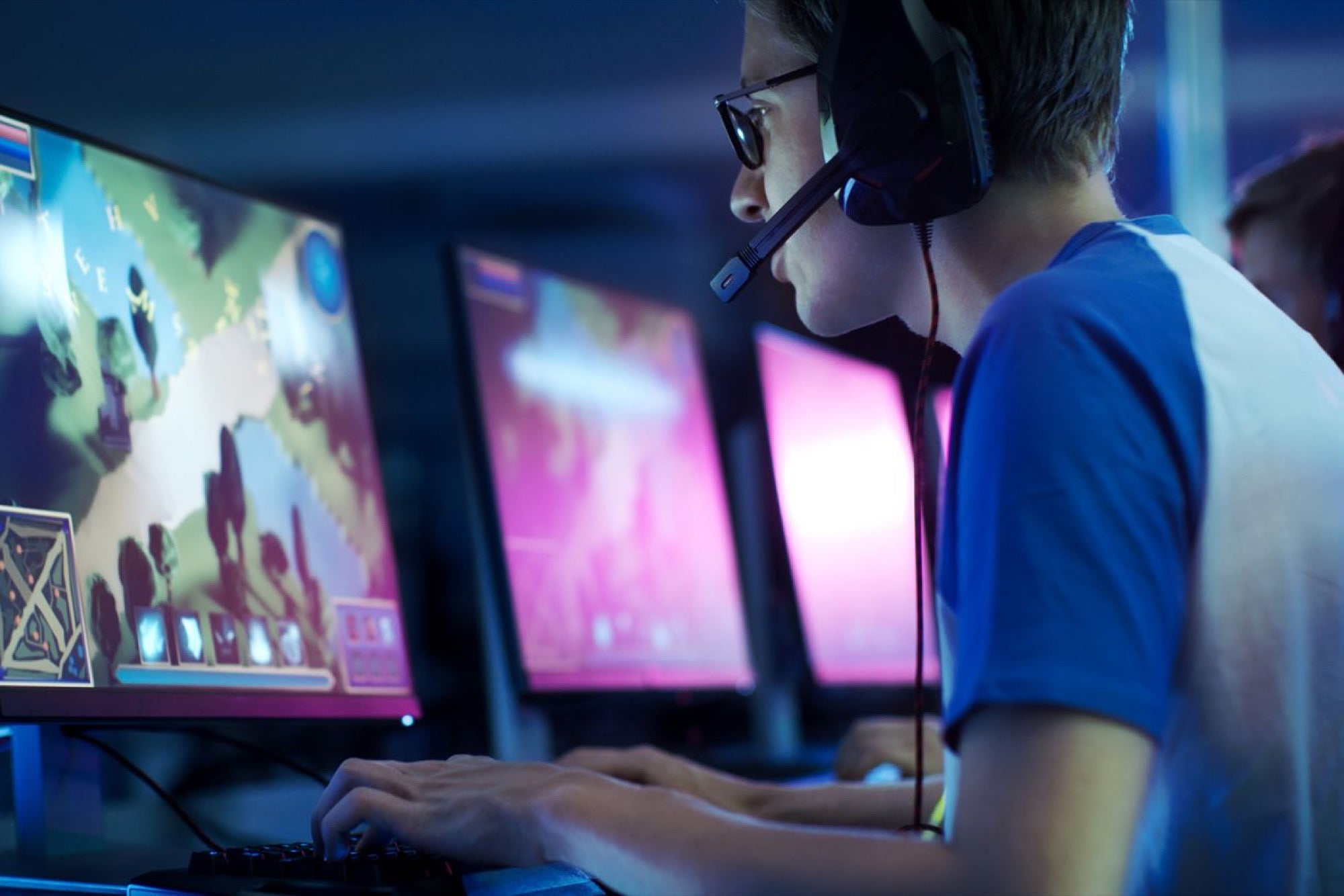Indian start-up vision and the skilled online gaming industry could be weakened by uncertainty in the tax regime

Indian start-up vision and the skilled online gaming industry could be weakened by uncertainty in the tax regime
“The ‘techade’ of India has arrived”, declared the Prime Minister with conviction during his Independence Day speech at Red Fort. He was referring to the present decade, during which the Indian digital economy will reach USD 1 trillion. The Indian economy is poised to benefit greatly from the burgeoning areas of 5G, semiconductor manufacturing, and new-generation technologies. One such emerging market is online gambling, a $2 billion business that is increasing by more than 28% annually.
To encourage “Made in India” and “Made for India” games, the Prime Minister has repeatedly pushed gamers and game developers. Around 800 Indian gaming businesses have access to a market with more than 400 million gamers, which allows for innovation and record-breaking growth.
The PM’s comments went beyond simple endorsements of the online gaming industry. Rather, the AVGC (Animation, Visual Effects, Gaming, and Comics) Task Force has been established to put them into practice. The Union Government has also backed these concepts by introducing a very open and cooperative strategy to provide uniform regulation to the online gaming sector.
The inter-ministerial group on online gaming is being led by the Ministry of Electronics and Information Technology, and it is anticipated that it will complete a strong and enabling regulatory framework in the upcoming months. A magnificent dream that became a wonderful reality would have been the sector’s meteoric economic development, supported by government funding. The terrible part is that our Indian tax system’s peculiarities have thwarted schemes before.
The Group of Ministers (GoM) on casinos, horse racing, and online gaming are alleged to have produced a recommendation that appears to be in violation of the Constitution. This was the first shock to hit the online skill gaming business. As is customary across the world, the sector has up until now paid 18% of the platform fee/gross gaming income.
The GoM did, however, imply that online skill games may be combined with gambling and subject to a 28% tax on the entire admission fee. When it comes to the value of supply for GST purposes, this would entail treating skill-based online games the same as gambling. Players would pay three times as much for each game as a result, and the indirect tax burden would grow by 1100%.
The consequences of this strategy are two in kind. First, online skill games that have actionable claims and were previously free from taxation under the GST scheme will now be subject to gambling and lottery-style taxation. The Supreme Court and several High Courts’ 60 years of constitutional jurisprudence will also be utterly disregarded. The constitutional courts have emphasized the difference between skill-based and chance-based games several times.
In contrast to games of chance, skill games are recognized as constitutionally protected enterprises under Article 19. The GoM’s suggestion was returned for further review. To the GoM’s credit, the following discussions included input from the sector and were available for consultation. To comprehend the constitutional distinction between talent and chance, the GoM sought legal advice. Young business owners who are creating gaming platforms and seeking to make them become unicorns now have some reason for optimism as a consequence of this.
The GST authorities have reportedly sent a prominent Bengaluru-based Indian skilled online gaming business a show cause notice, which sent the sector into a second and probably more destructive tsunami. Surprisingly, the notice is for INR 21,000 Crores, which is a lot more money than the total income of the sector! The government aimed to impose taxes on the whole contest buy-in/entry amount similar to betting and gambling.
The authorities want to send other letters of this nature to other businesses, according to news reports citing GST department insiders. The consequences of the law being implemented erroneously in such a fundamental way would be severe for major commercial entities.
If the tax authorities believed that this was an accepted legal position, then the GoM would never have been required. The primary goal of the GoM was to propose whether or not the whole entry price for the competition, any actionable claims made in the form of a prize pool, should be subject to a GST charge. It appears that the government considers skill games to be betting when they are played for a stake. In the GST Act, the phrase “betting and gambling” has not been given a distinct definition.

Therefore, the phrase’s meaning must be the same as that which the courts assigned to it while reading the Indian Constitution. Additionally, the courts have ruled that only games of chance qualify as “betting” under the words “gambling and betting” found in entry 34 of Schedule 7 of the Constitution. Such a predicament does not serve the interests of investors or business owners or the exchequer.
Over 1.6 billion dollars have been invested by foreign investors in the online gaming sector over the past 20 years. They had faith in the three unicorns that the Indian online gaming market, which can create more, had already produced. The shifting tax laws, however, do not provide investors or business owners much reason for optimism. Such unfavourable tax effects will cause the industry to either disappear or be forced to leave the country.
The idea of ease of doing business and the modern Indian economy ought to ensure that the goals of regulation, taxation, and economic reality are at least somewhat consistent. The specialized online gambling sector is always looking for this uniformity from regulators and tax officials. The sector hopes that, like the other branches of the government, it will find a tax structure that encourages growth without squeezing it into an impasse.
Indian online gaming is hampered by taxes

Taxes and legal ambiguity are weighing down the industry’s expansion.
The online gaming market in India is about to see unprecedented growth. The landscape of the online gaming industry, which is regarded as one of the future pillars of the economy, has changed dramatically as a result of the pandemic, with a massive increase in players (annual user growth rate is compounding at 40%), revenues, and investments (it is anticipated to draw US$ 100 million in foreign direct investment over the next two years).
By mid-FY 2020, there will be 400 million users, up from 250 million at the end of FY 2018, bringing the total market size for online fantasy sports to INR 24.3 billion. This upsurge has been caused by a sizable client base, improved internet connectivity, and an increase in knowledge. This has manifested in the unicorn club, which includes Indian businesses in online gaming and is predicted to reach USD 5.5 billion by 2025. The Indian gaming sector has enormous potential, and Prime Minister Modi has praised the nation’s entrepreneurs and software engineers for their efforts.
However, from its start, the online gaming industry has been burdened by legal controversies and uncertainties.
Legal Imprecisions
In India, each state has established its own rules for fantasy sports websites.
The controversy over whether success in these games is primarily influenced by talent or chance, with the latter being forbidden in the majority of Indian states, defined the industry’s earliest stages. Online fantasy games are protected under Article 19 of the Constitution since they require a significant amount of skill, which is merely a kind of commercial activity, according to the courts in several states, including Tamil Nadu, Kerala, and Karnataka.
This judicial intervention has ultimately resolved the issue by distinguishing between the two. Despite the aforementioned, certain governments, including Andhra Pradesh, Assam, Sikkim, Nagaland, Odisha, and Telangana, have continued to exercise their prerogative to forbid such online fantasy games.
Tax obstacles

Another problem for the sector now is taxes. The current GST rate for winning chances in betting, gaming, or horse racing is 28%. This tax is assessed on the overall transaction value rather than the margins. The issue at hand is whether the 28% tax rate will also be applied to the internet gaming industry. If so, the planned growth of the sector will be substantially hampered.
Typically, paying an admission fee is required to participate in online gaming. The gaming company only keeps a small percentage of such an entry charge to pay platform costs. The balance is added to a prize pool that is open to all participants, from which the winners get their cash prizes.
The gaming sector has repeatedly asked the government to make it clear that GST should only be assessed on a gaming company’s income or revenue, not on the total entry fee. Furthermore, it has been recommended that the government tax games of skill in a separate way from games of chance. It should be emphasized that the money collected for a prize pool may be considered either a collectable claim or money that is being held in trust for the participants.
Actionable claims are claims against any debt and are not covered by GST. The prize money pool is often kept undisturbed and in separate bank accounts by gaming businesses. Therefore, it would be unrealistic to subject the whole collection to the GST charge, especially because the rules regarding the handling of actionable claims are very clear.
While all of this is being discussed, a group of ministers has been formed to provide recommendations about the GST rate and whether or not it should just apply to gambling companies’ net margins. There is allegedly a scheme in the works to tax gross entrance amounts at a 28% GST rate, but further information is still required.
In the meanwhile, the GST authorities have written to several business owners requesting greater GST reimbursement due to the disagreement about value. This has undoubtedly affected the mood in the sector. In fact, in this retroactive churning of the tax situation, the industry’s poor profits are lower than the taxes the government may expect! However, on a somewhat more encouraging note, the Punjab and Haryana High Court recently gave much-needed respite by ordering the GST officials to refrain from taking any coercive action until the government explains.
Impact on Industry

The proposed tax rate rise from 18% to 28% would be disastrous for the online gambling sector. Customers would suffer because of this since they will have to pay the increased tax burden. Additionally, placing online gaming in the 28% GST bracket will not only slow development but also make returns on investment unprofitable. Over time, this will limit investments in this industry as innovation. Additionally, it shouldn’t be ruled out that some online gaming start-ups may relocate their headquarters outside of Indian law.
It’s interesting to note that 15%–18% of online gambling costs are taxed globally. Any rate over the global average may hinder the growth of the online gaming industry, which would result in a loss of considerable jobs that the industry has been instrumental in building as a reduction in the government’s ability to collect taxes.
edited and proofread by nikita sharma




